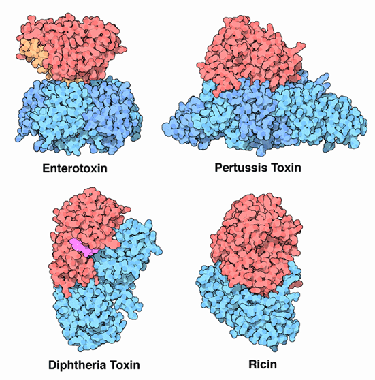Biological Toxin Safety

Biological toxins are toxic substances that can be produced by bacteria, fungi, protozoa, insects, animals, or plants and are classified separately from chemical toxins. They are nonreplicative, noninfectious materials but can be extremely hazardous, even in minute quantities. Commonly used biological toxins include: lipopolysaccharide (endotoxin), Diphtheria toxin, Pertussis toxin and Cholera toxin.
Some biological toxins are classified by the Federal Government as Select Agents due to their potential to pose a severe threat to public health and safety. Possession, use, and transfer of these biological toxins is highly regulated. The toxins do not require registration with the federal government if the amount under the control of a principal investigator does not exceed at any time the permissible toxin amounts.
All biological toxins used in labs require registration with the IUPUI Institutional Biosafety Committee (IBC). All work with any biological toxin must be described in an IBC protocol, including rooms where toxin is used and stored, disinfection of these areas, engineering controls used (e.g. fume hood) and procedures for inactivating toxin stock solutions. Recommended methods of inactivation for commonly used biological toxins can be found in appendix F of the IU Biosafety Manual.
Please contact IUPUI Biological safety staff at ehsbio@iupui.edu or 317-274-2005 with any questions about biological toxin use in laboratories.

|